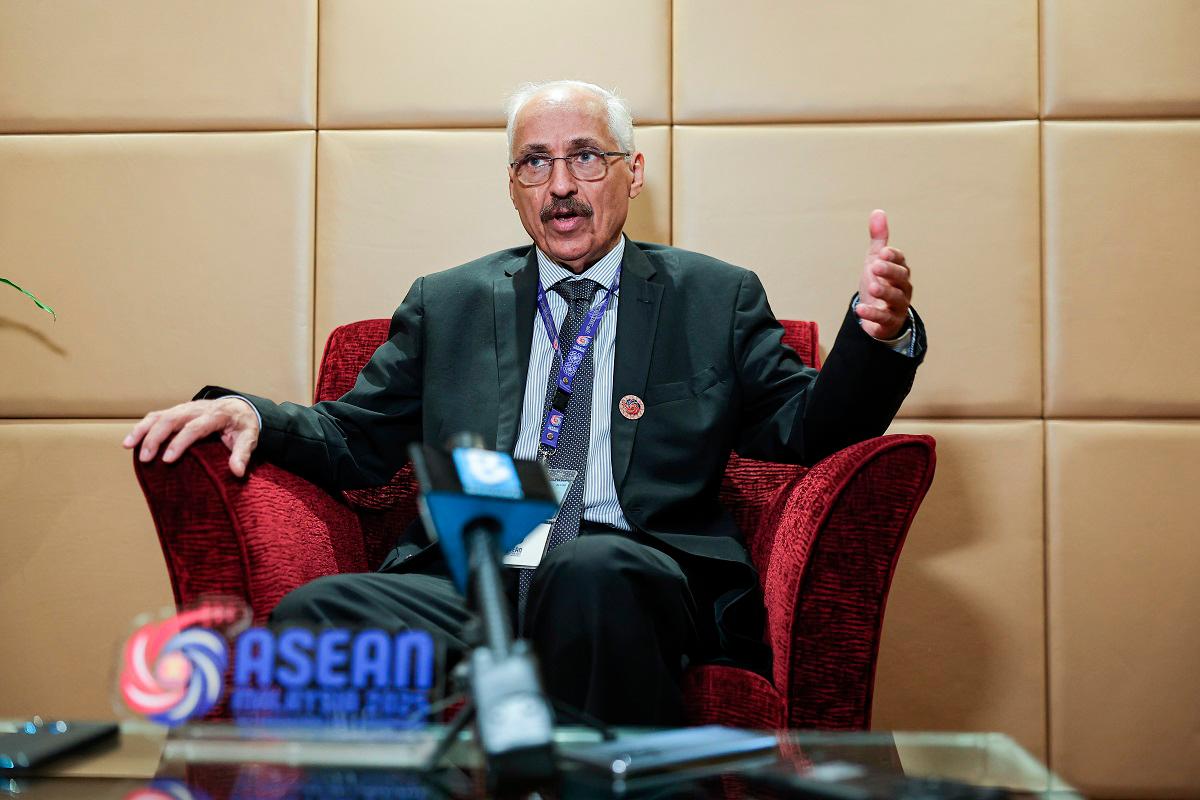KUALA LUMPUR: The first-ever ASEAN-Gulf Cooperation Council (GCC)-China Summit marks a significant step towards institutionalising strategic trilateral cooperation in various fields among the three partners, said the GCC Assistant Secretary General for Political and Negotiations, Dr Abdel Aziz Abu Hamad Aluwaisheg.
He said the inaugural ASEAN-GCC-China summit, scheduled for May 27, builds upon the momentum of the second ASEAN-GCC Summit and reflects shared interests among the parties, which collectively represent over 40 per cent of the GCC’s external trade.
“We can see that the potential is great to work together – the three of us, ASEAN, GCC and China – especially on trade and investment, security, political dialogue, education, and energy cooperation.
“China is a very close partner of the GCC and also a close partner of ASEAN, so it made a lot of sense to have this trilateral summit,” he told Bernama in an exclusive interview on the sidelines of the 46th ASEAN Summit here.
Aluwaisheg highlighted the evolving dynamics of ASEAN-GCC relations, noting that bilateral trade between the two regional groupings exceeded US$150 billion annually, making ASEAN one of the GCC’s top trading partners.
“ASEAN is a very important partner for the GCC... individual members of ASEAN also have special relationships, including Malaysia, Indonesia, Singapore and Brunei,” he said, adding that the growing cooperation among the three parties is also evident in the area of security, particularly maritime collaboration.
Delving further into maritime cooperation between ASEAN, the GCC and China, he acknowledged the varying levels of involvement among ASEAN countries in existing security arrangements under the Combined Maritime Forces – a 34-nation coalition dedicated to ensuring maritime stability.
He noted that maritime instability affects not only the Gulf states, but also key Asian trading partners.
“Economically, we (ASEAN-GCC-China) are extremely important players, the three groups. We recognise China’s constructive role in East Asia, ASEAN’s role in Southeast Asia, and we also believe that the GCC is playing an important role for security and stability in our region.
“For instance, we’re all affected by challenges to maritime security. It affects China’s trade with Europe because it goes through the Red Sea, (and) our region. We are affected by it, and all the Asian countries are affected by it. We need to work together,” he said.
As the trilateral summit unfolds, he expressed optimism that a formal mechanism could be adopted to ensure the implementation of its outcomes.
“Hopefully, at the end of the summit, we’ll agree on a mechanism on how to follow up the outcome... so that we will make sure that the wishes of the heads of state and government are implemented,” he said.
As the chair and host of ASEAN 2025, themed ‘Inclusivity and Sustainability’, Malaysia will host the 46th ASEAN Summit and related meetings at the KLCC from May 26 to 27.
In conjunction with the summit, two key high-level meetings – the 2nd ASEAN-GCC Summit and the ASEAN-GCC-China Summit – will also take place, marking an important platform for expanded regional and inter-regional cooperation.









